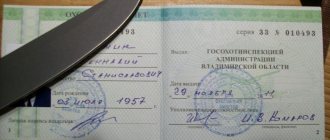According to customs rules, only goods for personal use can be freely imported and exported; Goods intended for sale must be declared and duty paid. High rates can make business not so profitable, so some businessmen resort to smuggling. In addition, some things simply cannot be transported legally for the purpose of sale: weapons, drugs, some pieces of art.
To prevent an ordinary person from accidentally becoming a smuggler, you need to learn the rules for transporting things. For example, in Russia you can only take cash in the amount of $10,000 (but in any currency); there are also restrictions on the export of fish, black caviar and diamonds. Thus, recently a Russian woman who flew in from New York was accused of smuggling jewelry because she did not declare a Rolex watch worth about 2.4 million rubles.
Nuances
The imagination of smugglers is inexhaustible, here are just some of the methods of smuggling:
- reduce the customs value of goods;
- declare the code of another product with a lower duty (gray cargo);
- hide on yourself (diamonds in a cast in the famous comedy “The Diamond Arm” or swallowed bags of heroin);
- dig a tunnel under the border;
- use a drone or radio-controlled raft;
- give to a person who is not being examined (for example, a diplomat)
- and etc.
In Ukraine, a 100-meter underground “vodka pipeline” was discovered crossing the border with Moldova. Moreover, this is not the first time an illegal alcohol pipeline has been discovered in Ukraine.
Qualified crimes, liability
All parts of the articles, as previously in Article 188 of the Criminal Code of the Russian Federation, require the commission of smuggling activities in one of the alternative ways:
- in case of concealment, special hiding places, places inaccessible for free viewing, and camouflage of objects are used;
- when using forged, invalid documents, such documents are provided to the person exercising customs control in order to conceal the fact of transportation of certain goods;
- non-declaration or partial declaration implies failure to fully include all necessary information in the declaration in the prescribed form.
Cash smuggling entails the following alternative penalties: fine, restriction of freedom or forced labor.
Qualified offenses in the case of money are the commission of a crime qualified under Part 2, i.e. on an especially large scale or by a group of persons (punishable in the same way, but in larger amounts and terms).
Illegal movement of alcohol and tobacco (Article 200.2 of the Criminal Code) also entails punishment in the form of a fine, forced labor or imprisonment (up to 5 years). Important! For the illegal circulation of alcoholic beverages, the legislator has determined the amount of fines - from 2 to 3 million rubles, as well as forced labor or imprisonment for up to 3 years. https://lexconsult.online/7513-shtrafy-za-nezakonnuyu-realizatsiyu-alkogolnoi-produktsii
According to Part 2 of Article 200 of the Criminal Code, the acts of a group of persons by prior agreement and an official are qualified. Punishable by imprisonment with or without a fine.
Part 3 assumes the responsibility of an organized group (imprisonment with or without a fine, with or without restriction of freedom).
Under Article 226.1 (illegal movement of poisons, potent substances, ammunition, weapons and other items and substances specified in the disposition of the article), Part 1 establishes liability in the form of imprisonment with or without a fine, with or without restriction of freedom.
For similar actions, but committed by an official or with the use of violence against a customs officer or border guard (Part 2 of Article 226.1), liability is increased by longer terms and fines. According to Part 3 of Article 226.1 of the Criminal Code, responsibility lies with the members of the organized group.
Smuggling: Definition
The term has Italian roots. Literally translated, smuggling is an action that contradicts the decision of the authorities. Currently, the term has received a clearer interpretation. The concept and types of smuggling are established primarily in the Customs Code of the Customs Union, as well as in the regulations of the participating countries of the Customs Union. As you know, the import and export of goods to/from the Russian Federation is subject to certain fees and duties. Smuggling is the transportation of goods without paying specified fees. It is worth noting that currently, transportation methods, contrary to established rules, are quite different. The movement can be carried out by hiding the goods or bypassing control. In this regard, the modern interpretation of the term contains clarifying points. According to current regulations, smuggling is the transportation across the customs border of a country of products or other objects specified in the regulations of a particular state, committed with concealment or in addition to control, with the fraudulent use of documentation/identification means, or carried out with false declaration or non-declaration at all.
Criminal and legal characteristics of smuggling
S. DOROZHKOV S. Dorozhkov, candidate of legal sciences. The essence of this crime as the movement of goods and other items across the customs border in violation of established rules was defined in Art. 78 of the Criminal Code of the RSFSR, in basic terms, is approximately the same as now (Article 188 of the Criminal Code of the Russian Federation). The maximum punishment (with qualifying criteria - 12 years of imprisonment with confiscation of property) was the same as now. Smuggling was classified as “other state crimes”, “adjacent” in Ch. 1 of the Special Part with elements of banditry, riots, actions disrupting the work of correctional institutions, and other crimes not related to economic activity. Differences in the legal constructions of the crimes provided for in Art. 78 of the Criminal Code of the RSFSR and Art. 188 of the Criminal Code of the Russian Federation, have been thoroughly analyzed in the literature. They concern 9 positions, mostly of a private nature. At the same time, the main thing is missed - the difference in assessing the degree of public danger of this crime, “translated” into the category of crimes in the sphere of economic activity (although, as noted, the maximum sanction for especially aggravating circumstances remained the same). The design of the crime under consideration has also undergone significant changes. It should also be noted that the original version of Art. 188 of the Criminal Code of the Russian Federation was amended by the Federal Law of June 25, 1998. If we talk about the direct object of smuggling, then it can be considered from two positions. Firstly, these are social relations (as well as corresponding interests, benefits and values) that ensure the implementation of normal (legal, lawful) foreign economic activity. This is what unites smuggling with other crimes in the field of foreign economic activity. Secondly, with a more detailed examination of the immediate object with an emphasis not on similarity, but on difference, the social relations that ensure the interests of Russian and foreign commodity producers, as well as the budgetary interests of Russia in terms of budget formation through customs payments, act as such. Some authors believe that the direct object of smuggling is “the procedure established by law for the movement of goods and vehicles across the customs border of the Russian Federation” <*>. ——————————— <*> Dikanova T.A., Osipov V.E. Combating customs crimes and money laundering. M., 2000. P. 131. Without denying that these crimes violate the specified order, we believe that such an interpretation of the direct object of smuggling is not entirely justified. It is overly formal, normative in nature, reminiscent of the (now almost unanimously rejected) one, according to which the objects of any crimes were treated with criminal legal norms providing for responsibility for them. But it is not the norm, not the rules established by it, including order as their totality, that suffers or suffers damage from the crime, but real social relations, interests, benefits and values protected by criminal law. In addition, it should be borne in mind that the procedure for moving goods and vehicles across the customs border is established and regulated not only by laws, but also by regulations. It is also not entirely correct to reduce, as is sometimes done, the main direct object of smuggling to the financial interests of the state, which consists in collecting payments when moving goods across the state border <*>. The financial interests of the state (as well as other entities) in this case are only part of what smuggling encroaches on and what it harms. ——————————— <*> Russian criminal law. Special part: Textbook / Ed. Zhuravleva M.P., Nikulina S.I. P. 212. The harm also consists of a violation of the economic interests of both Russian and foreign commodity producers as a result of the disorderly, uncontrolled entry into domestic markets of goods not subject to customs payments (duties, fees), which as a result become cheaper, which creates conditions for unfair competition. In a kind of criminal chain, harm can also be caused to consumers, since smuggled goods often do not meet quality and safety requirements. The above applies to the object of smuggling provided for in Part 1 of Art. 188 of the Criminal Code of the Russian Federation. Part 2 deals with the movement of items of a special kind, the circulation of which is prohibited, limited, and regulated by special rules; the direct object of such smuggling has a complex nature: along with social relations of an economic nature, it includes the safety of public health and public morality, military security, the safety of humanity and some other values. For the criminal legal characteristics of smuggling, the analysis of the characteristics of the subject of this crime is of great importance. In the theory of criminal law, the subject of a crime is considered to be material objects, things (items) in which certain properties of social relations protected by criminal law are manifested and which are directly affected by the person committing the crime. If the object of a crime is an abstract category, inaccessible to direct perception, then the object is always material, accessible to human perception. Contraband items are sent and transported, moved in space, transferred from the possession, use, disposal of one person to another, etc. The subject of contraband, provided for in Part 1 of Art. 188 of the Criminal Code of the Russian Federation, there can be any goods and items, with the exception of those listed in Part 2 of this article, as well as real estate, in addition to those listed in Part 2 of Art. 188 of the Criminal Code. The illegal movement of these goods and items across the customs border constitutes a crime under the indispensable condition that it is committed, as stated in the disposition of the norm (Part 1 of Article 188), on a large scale - if their value, according to the note to this article, exceeds five hundred minimum wages (in the original version of the note, this cost was determined at 200 minimum wages). For a detailed description of contraband items, it is necessary to refer to a number of norms of civil law, customs and other legislation. Thus, the definition of goods is given in the Customs Code of the Russian Federation (clause 1 of Article 18), as well as in the Law of the Russian Federation of October 13, 1995 “On state regulation of foreign trade activities.” Goods mean any movable property, including currency and currency values, electrical, thermal and other types of energy, vehicles, with the exception of those used for the international transport of passengers and goods, including containers and other transport equipment. As noted in the literature, Art. 18 of the Labor Code and the Federal Law “On State Regulation of Foreign Trade Activities” reduce the concept of a product to the concept of a thing, which is not entirely consistent with the norms of civil law (Article 128 and others of the Civil Code of the Russian Federation). “Although, of course, services, works, technologies, information, and objects of intellectual and industrial property (utility models, industrial designs, as well as trademarks, service marks, places of origin of goods) should be considered as contraband” <* >. ——————————— <*> Dikanova T.A., Osipov V.E. Combating customs crimes and money laundering. M., 2000. P. 133 - 134. As for the contraband items provided for in Part 2 of Art. 188 of the Criminal Code, it is necessary, first of all, to emphasize that their specific (“name”) list is exhaustive. The movement of these items across the customs border is subject to special rules. The amount of movement (cost of moved items) in relation to Part 2 of Art. 188 is not specified in the law. Signs, specific properties, procedure for circulation of narcotic drugs, psychotropic, potent, poisonous, poisonous, radioactive or explosive substances included in this list; weapons, explosive devices, firearms and ammunition, nuclear, chemical, biological and other types of weapons of mass destruction, materials and equipment that can be used to create weapons of mass destruction; strategically important commodities; cultural property is defined in the Federal Laws “On Narcotic Drugs and Psychotropic Substances” (1998), “On Weapons” (1996), “On the Export and Import of Cultural Property” (1993) and in many other regulatory legal acts , including Decrees of the President of the Russian Federation, resolutions of the Government of the Russian Federation, etc., as well as in lexicographic sources. It should be noted that this creates significant difficulties for law enforcement. The objective side, as an external expression of the process of criminal encroachment during smuggling, in contrast to the direct object and subject of the crime, is the same in content for acts provided for in both Part 1 and Part 2 of Art. 188 of the Criminal Code. The composition of contraband is formal: for its existence, it is not necessary to establish the occurrence of harmful consequences or prove a causal relationship between them and the corresponding actions. Mandatory signs of the objective side of smuggling include: - actions in the form of moving goods or other items (or actions directly aimed at realizing the intention to export or import contraband, for example, filing a false declaration); - the place of the action is the customs border of the Russian Federation, the customs territory of the Russian Federation (in this case we are talking specifically about the customs, and not the state border, which do not always coincide geographically); - one (or several) alternative ways of moving goods and other items across the customs border: in addition to customs control, with concealment from customs control, with the fraudulent use of documents or means of customs identification, associated with non-declaration or false declaration. The concept of movement across the customs border is formulated in the law (Article 18 of the Labor Code of the Russian Federation). Movement can be carried out by actually crossing the customs border, including sending by mail, using power lines, pipelines; or by performing actions aimed at realizing the intention to export or import goods or other items (filing a customs declaration, shipping goods to a foreign partner, etc.). In the first case, the crime is considered completed from the moment of actual crossing of the border, in the second - from the moment of filing a declaration, the beginning of the release of goods, etc. In the first type of movement, the place of smuggling is the customs border, in the second - the customs territory of the Russian Federation. Specific signs of illegal methods of moving goods and other items (in addition to customs control, with concealment from this control, etc.) are defined by customs legislation (Articles 276, 277, 278, etc. of the Labor Code of the Russian Federation). Articles 276 - 278, as well as other articles of Chapter 39 of the Labor Code of the Russian Federation, lost force due to the adoption of Federal Law of December 30, 2001 N 196-FZ “On the implementation of the Code of the Russian Federation on Administrative Offenses”. Exactly what goods and other items must be declared are defined in Art. 168 Labor Code of the Russian Federation. The declaration procedure is regulated by Art. Art. 169 - 179 TK. The characteristics of the objective side of smuggling also include such an optional feature as means of committing a crime, which are used in a certain (deceptive, as stated in the disposition of Article 188 of the Criminal Code) way. These are documents (falsified, invalid, obtained illegally, containing false information, etc.) and means of customs identification (fake seals, seals, markings, etc.). It should be noted that methods and means are precisely optional (i.e., optional) elements of the objective side in relation to the entire set of crimes. In cases where they are included in the disposition of the norm, they serve as mandatory for the given composition, i.e. subject to proof during the preliminary investigation and trial. The subjective side of smuggling is guilt in the form of direct intent in relation to the movement of goods and other items across the customs border. In cases where the movement occurs through non-declaration due to negligence, criminal liability is excluded (liability arises under Article 279 of the Labor Code for an administrative violation). Article 279, as well as other articles of Chapter 39 of the Labor Code of the Russian Federation, became invalid due to the adoption of Federal Law No. 196-FZ of December 30, 2001 “On the implementation of the Code of the Russian Federation on Administrative Offenses.” The general subject of smuggling is any natural sane person who has reached the age of 16, regardless of citizenship (who does not have diplomatic immunity). Without considering in detail all the qualifying and especially qualifying signs of smuggling, we note that when constructing Art. 188 of the Criminal Code of the Russian Federation of 1996, changes were made to this crime, which basically must be recognized as justified and convincing. In particular, what should be appreciated as a successful legislative novelty is that for the first time, among the qualifying signs of smuggling, repetition and the use of violence against the person exercising customs control are provided (clauses “a” and “c”, part 3 of article 188 of the Criminal Code). It should, apparently, be recognized as correct that the list of qualifying criteria does not include the commission of smuggling by a person previously convicted of this crime (taking into account the norms contained in paragraph “a” of Part 1 of Article 63, as well as Article 68 of the Criminal Code RF), and the open movement of goods and other items across the customs border contrary to the direct prohibition of the official exercising customs control (in real life, what is more dangerous is not the so-called “suitcase” smuggling and the movement of its items by breaking through, but trade smuggling and its other sophisticated , veiled forms). One should also agree with the deprivation of independent significance of such qualifying signs of smuggling as its commission by a person exempt from certain forms of customs control, or a person authorized to move certain goods and vehicles across the customs border (these circumstances can be taken into account by the court when individualizing punishment). Finally, it is justified to tighten the punishment for smuggling committed by an organized group by increasing the lower limit of the prison sentence for this crime from 5 to 7 years. Smuggling, provided for in the first part of the article, refers to crimes of medium gravity, parts 2 and 3 - to serious ones, and part 4 - to especially serious crimes. LINKS TO LEGAL ACTS
“CRIMINAL CODE OF THE RSFSR” (approved by the Supreme Court of the RSFSR on October 27, 1960) LAW of the Russian Federation of April 15, 1993 N 4804-1 “ON THE EXPORT AND IMPORT OF CULTURAL VALUES” “CUSTOMS CODE OF THE RUSSIAN FEDERATION” (approved by the Supreme Court of the Russian Federation on June 18, 1960) 993 N 5221-1 ) “CIVIL CODE OF THE RUSSIAN FEDERATION (PART ONE)” dated November 30, 1994 N 51-FZ (adopted by the State Duma of the Federal Assembly of the Russian Federation on October 21, 1994) FEDERAL LAW dated October 13, 1995 N 157-FZ “ON STATE REGULATION OF EXTERNAL TRADE ACTIVITY" (adopted by the State Duma of the Federal Assembly of the Russian Federation 07.07.1995) “CRIMINAL CODE OF THE RUSSIAN FEDERATION” dated 06.13.1996 N 63-FZ (adopted by the State Duma of the Federal Assembly of the Russian Federation on 05.24.1996) FEDERAL LAW of 13.12.1996 N 150-FZ “ON WEAPONS” (adopted by the State Duma of the Federal Assembly of the Russian Federation on 13.11 .1996) FEDERAL LAW of 01/08/1998 N 3-FZ “ON NARCOTIC DRUGS AND PSYCHOTROPIC SUBSTANCES” (adopted by the State Duma of the Federal Assembly of the Russian Federation on 12/10/1997) FEDERAL LAW of 06/25/1998 N 92-FZ “ON AMENDMENTS AND ADDITIONS TO CRIMINAL CODE OF THE RUSSIAN FEDERATION" ( adopted by the State Duma of the Federal Assembly of the Russian Federation on May 20, 1998) FEDERAL LAW of December 30, 2001 N 196-FZ “ON THE IMPLEMENTATION OF THE CODE OF THE RUSSIAN FEDERATION ON ADMINISTRATIVE OFFENSES” (adopted by the State Duma of the Federal Assembly of the Russian Federation on December 20, 2001) Legality, N 1, 20 03
Interrogation under a pseudonym"
Comments on laws »
Methods of smuggling
At the present stage, the types of smuggling have undergone changes. If at the beginning of economic relations between countries the methods of smuggling were not particularly imaginative, then in the modern criminal world new containers and hiding places are invented every day.
Finished works on a similar topic
Coursework Customs smuggling 430 ₽ Essay Customs smuggling 270 ₽ Test work Customs smuggling 190 ₽
Receive completed work or specialist advice on your educational project Find out the cost
Drug smuggling usually occurs in the body of a courier, such couriers are usually called camels or mules. Very often the container ruptures, causing the death of the courier.
Large regular shipments of contraband are transported underground, that is, by using a tunnel.
Help transporting small shipments:
- small vessels
- drones
- aviation
- animals
- artillery
- people completely unaware of smuggling
Note 2
Sometimes, criminals use ritual or medical supplies (coffins, transplant containers) or diplomatic cargo and mail to transport illegal items.
Contraband item
In the Russian Federation, the subject of smuggling, according to the explanation of the Plenum of the Supreme Court of the Russian Federation in Resolution No. 6 of May 27, 2008 “On judicial practice in cases of smuggling”, according to paragraph 3 of this Resolution, can be any movable property that is moved through the state border and is recognized as a product by the Customs Code of the Russian Federation. Contraband item – and other items that are not goods (for example, a manuscript of a scientific article or an object of intellectual property on a tangible medium that does not have the price of a product, an industrial design). The subject of smuggling can also be Russian currency, traveler's checks, foreign currency, foreign and domestic securities in documentary form.









